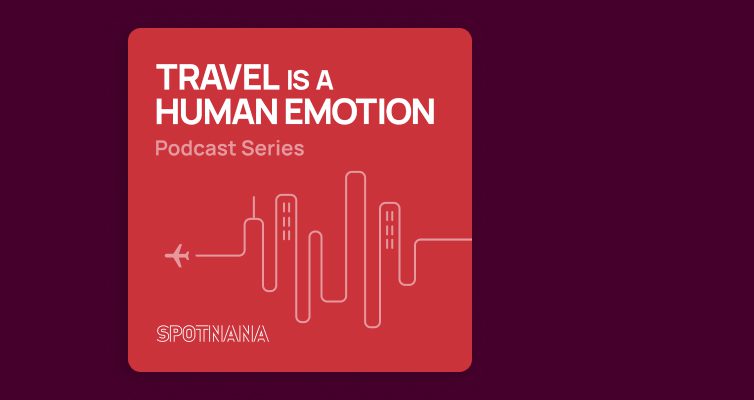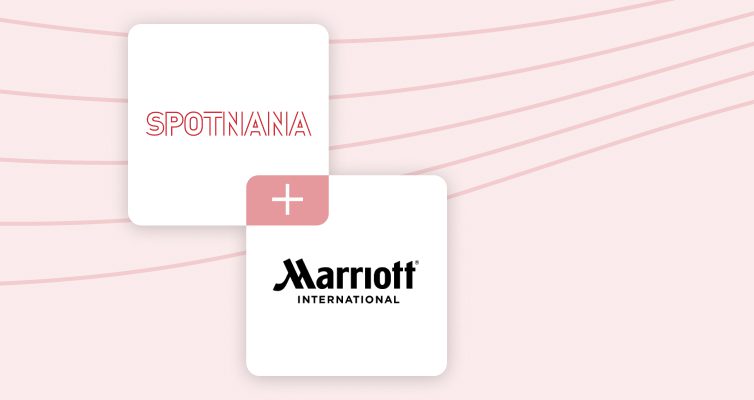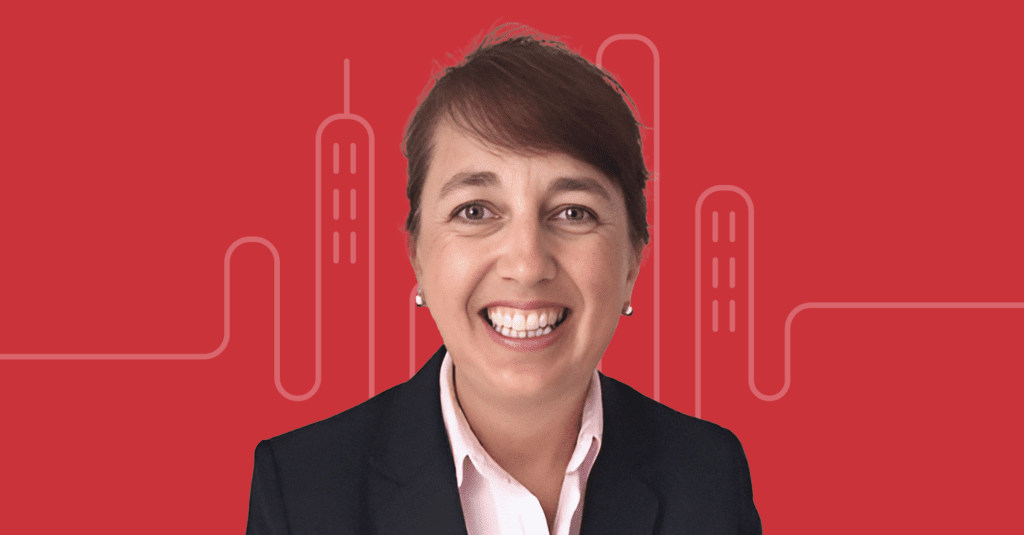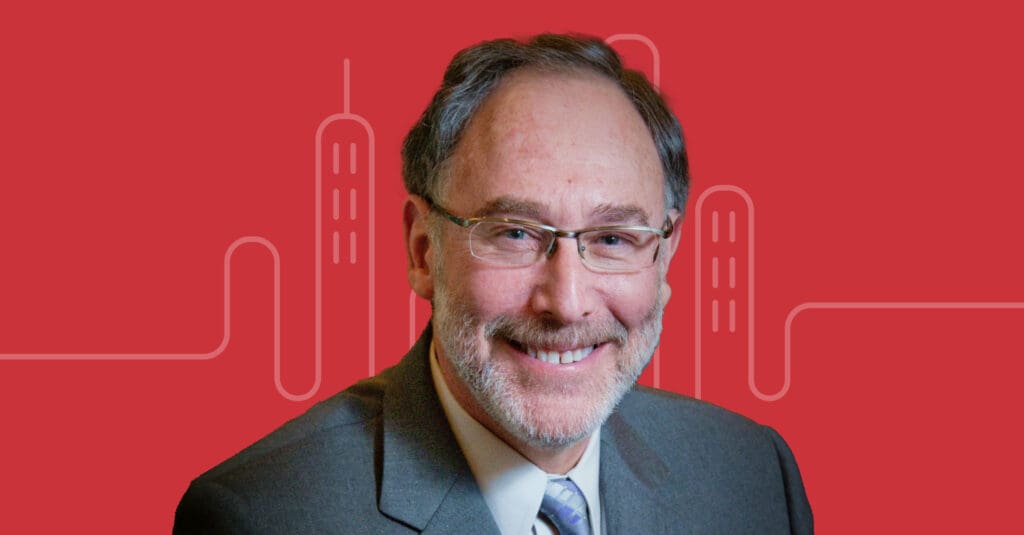Johannes Walter of Lufthansa talks about investing in innovation
Guest: Johannes Walter, Vice President Area Management Home Markets and Global B2B Servicing at Lufthansa Group
Host: Sarosh Waghmar, Founder and CEO at Spotnana
Length: 15:25
Johannes Walter joins Sarosh Waghmar in late 2023 to discuss Lufthansa’s investments in technology companies like Spotnana, the airline’s digital distribution strategy, and the significance of New Distribution Capability (NDC) in enhancing airline distribution.
Johannes Walter: Being responsible myself for distribution of our offering, for me, it was only natural that we are also investing into partnerships that can help us to really innovate the ecosystem.
Sarosh Waghmar: Welcome to the Travel Is a Human Emotion podcast. I’m Sarosh Waghmar, founder and CEO at Spotnana. I’m very excited today to present to you my guest, Johannes Walter, the head of channel partners at Lufthansa Group. Johannes, welcome and to start off this first podcast, maybe share with our audience what your role at Lufthansa exactly is.
Johannes Walter: Thanks for having me. So first of all, it’s wonderful to have this opportunity at Lufthansa Group. I’m driving our digital channels. And that really means from a customer perspective, the team and I, we try to make sure that guests actually find our own apps and our own dot coms. And we also work together with the whole travel tech ecosystem.
We innovate together in order to drive customer centricity. And what it’s all about is really to make sure that our guests can make conscious choices when they try out the different Lufthansa Group products and try to find whatever suits them best.
Sarosh Waghmar: That being said, maybe you can dig deeper and share what truly makes you excited about working for Lufthansa Group and especially these customers that you serve in your role.
Johannes Walter: Yeah, well, first of all, I’m super grateful to work for the company as we are really striving and that’s also outlined in our mission to really connect people, cultures, and economies in a sustainable way. Of course that latter part is also gaining more and more importance. So we’re really investing heavily into new technology to make sure that we can do that.
We are a pretty diverse bunch. We call it a full fight of people from around the globe. I’m especially excited about all the partnerships that we are privileged to entertain. I just came back from a recent trip in APAC to Korea and China, and it’s really absolutely amazing what kind of innovation is happening there.
And to have basically the chance to engage and to really think about new opportunities is really, really motivating. We’ve even gone a step further now with a new vision statement that is called shaping aviation loved by generations to come. And I think it’s this shaping part, Sarosh, really, we want to pilot change, we don’t want to just take basically the backseat. And so, yeah, I’m very happy that the team and I can actively contribute to that.
Sarosh Waghmar: Fair enough. Maybe you can help us expand a little bit more on this, from our early discussions. As you know, Lufthansa Group invests in a few technology companies, and as an investor in Spotnana, which we are very fortunate about, what role did you play in that investment decision?
And maybe you could explain a little bit more. Why did Lufthansa Group decide to invest in Spotnana? You know, especially you and I have had a lot of internal discussions, but for the audience. A lot of new tech startups are out there. You know, there’s a whole Lufthansa Innovation Hub too. Maybe just an overview of how Lufthansa looks at investments.
You all are for the lack of a better word, I would say very picky. You all decide on who you all want to invest in. And so maybe just the philosophy behind the investment and how we all look at other players that can add value in this ecosystem for Lufthansa. And it’s not just about travel tech, right?
You all do things in SAF. You all do things on carbon. You all do things on baggage, just it’s across the entire ecosystem for an airline. So for an airline to have this investment arm, how do they look at it? And just for some of the audience, how do you evaluate these decisions.
Johannes Walter: First of all, I think to put it in a broader context, obviously Lufthansa Group invests literally billions every year, right?
To ensure a constant modernization of our offering of the fleet, first of all, but also for all the in flight enhancements that we drive. Like for example, Allegris or Swiss Senses, our new cabin experience, but also into training of our staff, of our crews of people. So I think there’s a lot of investments we take and being responsible myself for distribution of our offering, for me, it was only natural that we are also investing into partnerships that can help us to really innovate the ecosystem.
I think that’s the key. That’s the key role. So as you can imagine, there are quite a few people involved for making any investment decision that looked at the group, but we really found the tech stack very exciting, free from really any legacy and also the business outlook, quite frankly, we found that appealing in this overall context for us, it’s not the last mile really, because we know there’s a lot more that you do in the background, but.
Given that we invest so much into our hardware, into our software, then really making sure we bring that in front of our guests is super crucial. And I think it’s only natural that we kind of engage here with, like you said, a handful of partners to see how we can really shape the industry.
Sarosh Waghmar: And you all have been at the forefront of NDC compared to most airlines. It started off in early 2015, 2014, and you all have been leading this distribution change. You know, finally, things are catching up. As Spotnana and Lufthansa Group announced this deep integration, maybe from your perspective, and especially for our audience and customers, you could share with them, what was the experience of building these NDC direct connections?
And how was this different with Spotnana versus some of the other players out there? I think that is something that especially corporate customers and even the TMC customers want to understand. Why is this fundamentally different versus anyone else out there? What are the integration points that have happened between our two organizations across the entire Lufthansa Group?
Johannes Walter: I think there are two aspects to it. I think first of all, we’ve done I think a three digit number of direct NDC integrations. So like you’ve said, it’s not the first integration we’ve done, but what has been very compelling is the depth of expertise and also the speed to market that the teams at Spotnana have shown in cooperation with our teams.
So really, you know, working at eye level, really trying to understand each other’s challenges, but also the opportunities that we see. So on one hand, really the depth of the integration, and then also your Spotnana tech stack that goes far beyond just a lean and customer-centric booking experience.
But it really goes to the depth of it. All these mid-office, back-office discussions that we’re seeing in other constellations simply didn’t exist because it’s a single. It’s future fit. I think that’s another point, right? We are looking into a world where we want to move to 100% offers and orders.
And you were already in such an environment. So for us, of course, that was very exciting to partner up.
Secondly, I think it’s also the mindset. And I think that’s very important in any partnership that if you team up and from the very beginning, when we met Sarosh, we’re always thinking two steps ahead, right?
Where can we move this? Where can we have this? So really the integration is important. It’s very deep, but it’s really only the groundwork. We are very excited about what we can build beyond it. So it’s more a means to an end if you wish and not the end itself. And I think that was the second point that was compelling and different to some of the other integrations that we have.
Sarosh Waghmar: Thank you for sharing that. You know, if anyone’s been wanting change in the airline industry for the longest time, it’s been Lufthansa and now we see everyone else catching up to it. Distribution is going to play a major role as we’ve always discussed in the next few years to come. I guess that momentum has been building up and now finally things are just changing.
I think my biggest takeaway has been, there’s no reason why suppliers should not take control of their own content at the end of the day. I always say, this is your airline and your seat. You should be able to decide who and what you want to give and when you want to give it. And, you know, this happens in every other business.
So it’s not just in the airline or the hospitality industry. It’s just happening everywhere. People want to take control and create those offers. This is something we are very aligned to and something that we’ve been wanting this change for the longest time. Now, that brings me to our next question on this direct NDC integration.
It supports, obviously, a wide range of capabilities. You know, this continuous pricing. There’s obviously the personalized booking experience. There’s green fares, self-service changes and cancellations. Obviously, there’s analytics and just the whole comprehensive servicing stack. Maybe you can explain to the audience, what does continuous pricing mean and what value does it create?
People say continuous pricing and sometimes it’s from a layman’s perspective, it’s not really well explained. So maybe from your perspective, if you had to pitch this to a corporate or to a traveler. Why does this add value to them? Because at the end of the day, we as human beings want to know what is it in for me and maybe this helps set that context for them.
Johannes Walter: Absolutely fair question, Sarosh, and I think for many outside the industry, also for many of our corporate customers, it’s probably even hard to imagine. But what happened in the legacy airline industry is that we were basically using letters of the Latin alphabet. And unfortunately we only have 26 to define how we can set price points.
Those are the so-called booking classes. And this from a customer perspective meant that the limited amount of price points that we can set meant significant price jumps between the offerings. So it could happen that, you know, if one booking class was sold out, you immediately jumped to the next booking class.
You could have differentials between a hundred-plus dollars, between the different booking classes, really depending on the cabin and so on and so forth. But from an airline perspective, it meant that we could not price ourselves competitively because we could not use every single step along the price curve.
So what continuous pricing does, and that is what the name actually suggested, very simply puts us into a position to offer competitive fares along a continuous price curve, and from a customer perspective, for the very reason how we have chosen to implement continuous pricing, that is always lower than the legacy static price point.
It very simply means more attractive offerings, less jumps, but also always a cheaper, lower price point than compared to previous distribution technology. So basically, from a customer perspective, in this case, it is simply a benefit that is very clearly visible and also measurable because it’s just a differential between what the legacy price point is and what the continuous price point is.
It’s a tangible benefit which doesn’t sound obvious at first because obviously it’s something that is really related to technology and the way we used to distribute and the way we can now.
Sarosh Waghmar: That’s fantastic. While expanding on these capabilities, maybe you can share a little bit about green fares and why are they important to travelers? Because this is an initiative that Lufthansa is leading from the front.
Johannes Walter: Yes, like I said, it’s also outlined in our mission statement, sustainability is really at the core and we really want to make sure that we ensure that aviation is loved by generations to come. And that means we simply have to change technology in the long run.
But until it’s there, we have to use technology that’s available. That means more than aircraft, but it also means sustainable aviation fuel. And these green fares basically have two components. When it comes to sustainability, they have 20% of SAF shares of sustainable aviation fuel share, and they have 80% of really certified high end compensation projects.
That’s basically offsetting. So you have a hundred percent overall compensation. And on top for the guests, we offer a premium mileage of 20%. So there’s also benefit for the traveler himself or herself, but from a corporate perspective, it’s definitely. a sustainable choice to make compared to our standard fare offerings.
And the first step on a long journey, certainly that we want to embark on together with our customers.
Sarosh Waghmar: Now, as we wrap this up, my last question is obviously going to be around distribution. When you think of innovation and want to see digital distribution over the next two to three years, what truly comes to mind for you?
Where do you see this going? Because there’s just so much noise out there and there’s so much momentum as well around content. And I said earlier as well that this is in Lufthansa’s wheelhouse, they’ve been wanting to push the boundaries on distribution for the longest time.
So with all the innovation that’s going on, where do you see this landing up?
Johannes Walter: It’s a very good question. And of course, a very tough one because it’s always difficult to predict. But what I would personally love to see is less of a need to compare multiple layers, multiple options, but somehow an inspiration path that is even more tailored to my needs.
Maybe I can, as a corporate traveler, for example, already ensure that I give a lot of information that is relevant to me, whether the kind of travel patterns, the kind of suppliers that I want to use in line with corporate policies, of course.
In the end, I get a short list of offerings. I don’t have to run through a long list, especially on mobile displays, it has not so much space. So really, hopefully a very relevant offering in the end with the confidence that of course that all the comparisons have been already done in the background and have been fact checked.
But basically, I think the display of the offers should become more focused. And on the other hand, the inspirational part on the leisure side, I think can also be enhanced. So really to bring up proposals for travel that maybe I wouldn’t have come up myself. I think using AI is definitely everywhere in all the discussions, but that could be something that really creates benefits for travelers, both in the private travel space, but also within corporate travel.
Sarosh Waghmar: Once again, thank you for your time. And as we wrap this up it’s been a pleasure speaking to you, but above all, we’re super excited about this partnership between Lufthansa and Spotnana and, you know, the world needs to see a lot more change. So excited to deliver that to all our customers together.
Johannes Walter: Thanks for having me. The pleasure is all mine and I’m really looking forward to what our teams can create together for our corporate customers.






